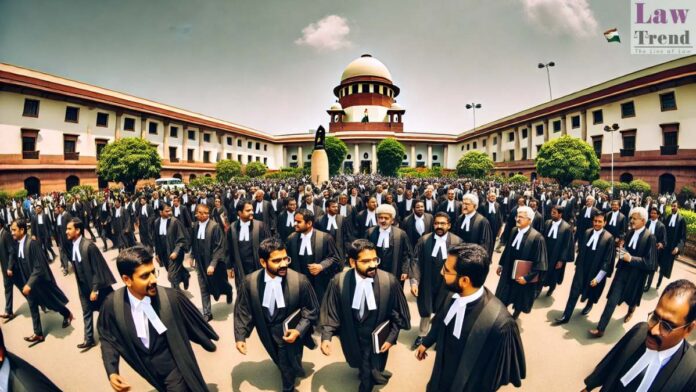In a significant directive ensuring procedural transparency, the Supreme Court of India ruled that Advocates-on-Record (AoRs) newly designated as Senior Advocates must promptly inform their clients and make alternative arrangements for representation before the Court. The directive came in the case of State of Madhya Pradesh v. Dileep (Criminal Appeal No. 1364/2015), heard by a
To Read More Please Subscribe to VIP Membership for Unlimited Access to All the Articles, Download Available Copies of Judgments/Order, Acess to Central/State Bare Acts, Advertisement Free Content, Access to More than 4000 Legal Drafts( Readymade Editable Formats of Suits, Petitions, Writs, Legal Notices, Divorce Petitions, 138 Notices, Bail Applications etc.) in Hindi and English.




